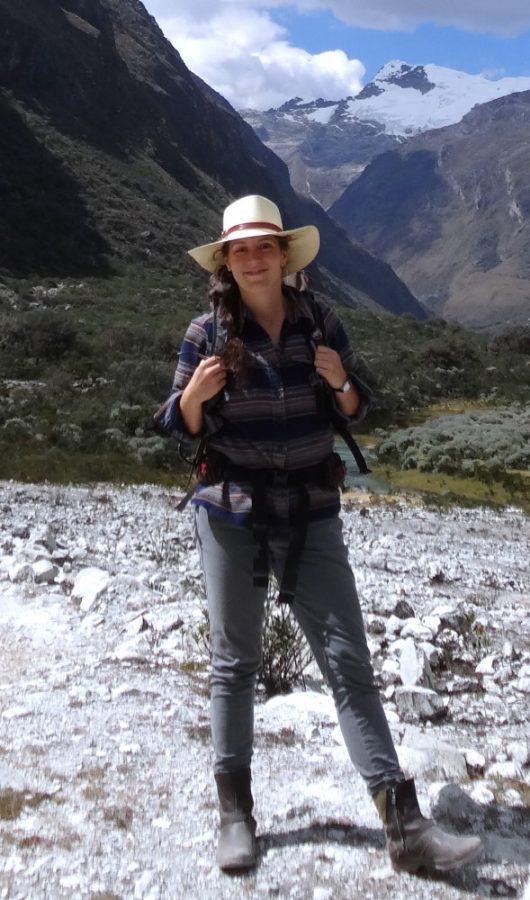This semester, in a conscious effort to recognize women for their contributions to science, the Daily Wildcat will run regular profiles of UA women who hope to change the world through their passions for knowledge. Some of the women to be featured are only just beginning their careers in research or medicine, while others have already impacted the decisions of aspiring young scientists through teaching and mentorship.
Each woman in the series was asked to discuss another female scientist who influenced her decision to enter her chosen field. Like the role models they discuss in their profiles, each of the women featured this semester will go on to inspire girls and women to follow their hearts in the sciences.
We continue our series today with a profile of Megan Mills-Novoa, a graduate student in the UA School of Geography and Development.
After graduating from Lewis and Clark College in 2009, Megan Mills-Novoa spent two years as an Emerson National Hunger Fellow. During that time, she worked for the National Family Farm Coalition in Washington D.C. as a policy analyst researching how government policies and programs affect farmers in the U.S.
Upon completing her work in Washington, Mills-Novoa joined El Centro de Cambio Global in Santiago, Chile. There, in her role as a Fulbright research fellow, she conducted research regarding the impact of global climate change on Chilean vineyards. From Chile she traveled to Hanoi, Vietnam, where her status as a Luce scholar allowed her the opportunity to engage in sustainable growing practices with local rice producers.
Throughout her educational career and professional endeavors, Mills-Novoa has demonstrated strong commitments to food security and sustainable agriculture, fields that are becoming increasingly important as our planet’s resources diminish and its ecosystems undergo rapid change.
Her work in the environmental sector is already making positive impacts in the science community and it will undoubtedly continue to do so.
Currently, Mills-Novoa is a research assistant at the Udall Center for Studies in Public Policy, working on yet another project in climate research titled “Strengthening Resilience of Andean River Basin Headwaters Facing Global Change.”
Mills-Novoa’s current work often takes her Peru, where she collects data in the field.
Below, Mills-Novoa describes her undergraduate mentor, geomorphologist Elizabeth Safran of Lewis and Clark College.
“During my time as an undergrad at Lewis & Clark College, I was mentored by Dr. Liz Safran, a geomorphologist. I was 19 when I took my first class with Dr. Safran and went on to be her research assistant and advisee. I have gone on to become a human-environment geographer and not a geomorphologist, but I was inspired by Liz’s incredible presence as an educator and mentor. She pushed me to follow rigorous avenues of investigation, write clearly, and teach what I am passionate about and teach it well. Liz, above all, taught me about the impact women scientists can have in academia on their field of study, on their students and on the trajectory of their campus communities.”
Follow Elizabeth Hannah on Twitter.









